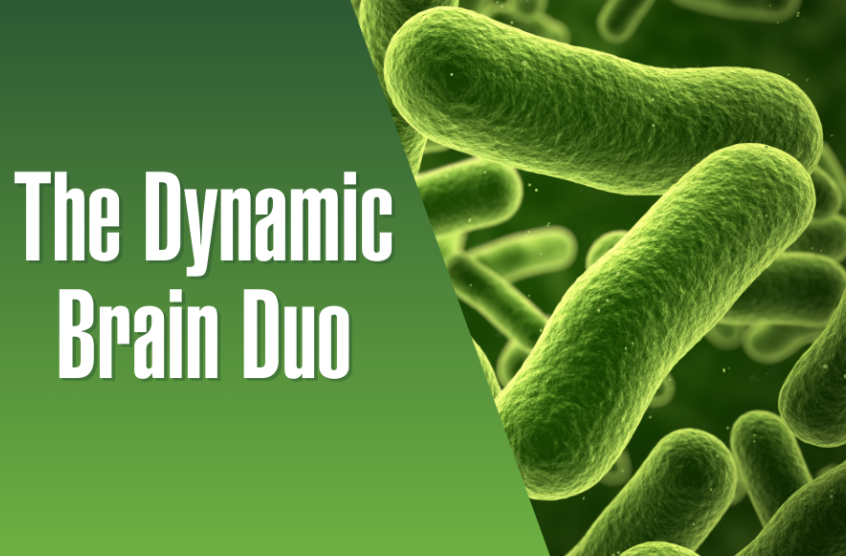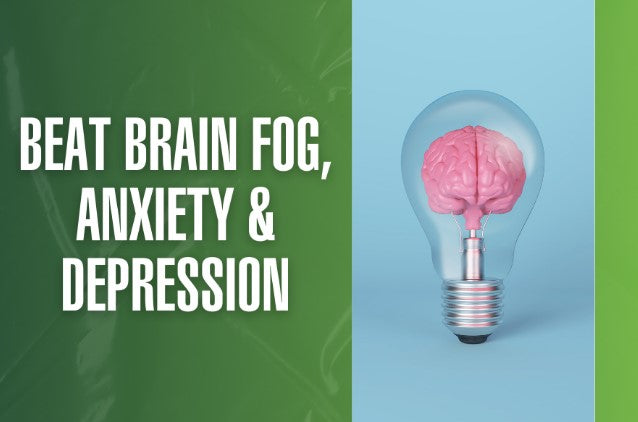
All of us have had moments as our parents get older when we realize how important it is that they take care of themselves because we want them around for as long as possible.
As many of you know, I lost my dad a couple of years ago. What I wouldn’t give to have him here and healthy. That loss serves as a constant reminder of how thankful I am for my mom and want her to keep her health and vitality for decades to come.
Whether you have aging adults in your life or not, we all want to feel young.
And we don’t want the effects of aging to drag us down. Aching joints, trouble sleeping, and sagging skin are not what any of us want for the next 50, 60, or 70 years of our lives!
While companies spend millions and millions each year to convince us that serums and creams are the fountains of youth, the truth is that what we put IN our bodies affects aging far more than what we put ON our bodies.
If you want to truly add years to your life, you’re not going to do it with $200 moisturizer.
Today we’ll talk about what really keeps us young, so that our parents and we can stay healthy, active, and full of life well into our 90’s and beyond.
Let’s get started by getting on the same page about the common signs of aging:
-
 Fatigue
Fatigue - Arthritis or joint pain
- Brain fog
- Sleep apnea
- Insomnia/difficulty sleeping
- Difficulty digesting after meals
- Gradual weight gain
- Sagging skin and visible varicose veins
- Hearing loss
- Vision changes
How many of those do you already experience? What about your parents?
For too many of us, the changes that come with age happen so slowly that we don’t even notice them. And then one day, we wake up with a stiff back, aching knees and fingers, tired after a bad night’s sleep, and we wonder what happened to our youthful bodies we once took for granted.
Whatever your age, here are the science-backed ways to stave off the aging process and keep your body and mind healthy.
Exercise
A sedentary lifestyle is associated with risk of early death. But with that said, it’s not just important that you exercise, but also that you do forms of exercise that extend longevity. Research shows people who engage in swimming, strength training, cycling, and/or racket sports regularly decrease their risk of death considerably.
Activity
Staying active well into the golden years is about more than just exercise. Research shows longevity benefits associated with volunteering in the community, continued learning and mental challenges, listening to music, and active connections with friends and family, in addition to not smoking, of course.
Diet
Have you ever heard a tale like this? “My great-grandpa lived to 105 and he ate bacon and hash browns every morning of his life!”
Do outliers like that exist?
Sure, but they’re remarkable because they’re outliers, and there were so many OTHER factors than diet that determined their longevity. All of the relatives who ate like that and died of relatively early heart attacks aren’t mentioned because that’s unfortunately all too typical. 
Science tells us that eating well does extend our life expectancy, and at the same time, increases quality of life while we’re still here.
One of the ways we know plant-based diets work so well to extend life expectancy is from studying people on the island of Okinawa, Japan.
Average life expectancy there is the oldest of anywhere in the world, and their diet consists mostly of fruits and vegetables with occasional seafood and grass-fed meats. They eat very little dairy or grains, including less rice than other parts of Japan.
With that said, you have to be careful about eating a vegetarian or vegan diet as you age. Why? Many vegans and vegetarians eat a diet containing a lot of:
- Highly-refined grains and starches
- Processed meat substitutes made from soy
- A primarily wheat-based diet
- Lots of sugar
- Pro-inflammatory Omega-6 fats
And that’s a problem, because diets with too many of those foods and not enough of the omega-3 fats found in wild salmon and other animal meats lead to increased arthritis, brain fog, wrinkles, and a compromised immune system.
Perhaps most alarming is an inflammatory diet’s link to memory problems. The brain is primarily made of fat, and what happens with people suffering from Alzheimer’s and other forms of dementia is that their brains are literally starving. We humans either need glucose (sugar) or ketones (fat) as brain fuel. Their brains have stopped producing insulin, and brains in that state can no longer convert glucose into energy. If they are also starved for good fat, their brain function is impaired and they start to lose their memory.
So it is truly vital that we eat diets rich in anti-inflammatory, alkaline foods and minimize the inflammatory, acidic foods we consume.
Research tells us that anti-inflammatory foods:
- Support proper brain function
- Reduce inflammation in the cardiovascular system, helping prevent heart disease
- Keep bones and muscles strong
- Prevent osteoarthritis
- Fight cancer-causing free-radicals
- Protect eyes from degeneration
- Support a healthy immune system
Eat plenty of these anti-inflammatory foods:

- Dark, leafy greens
- Vegetables
- Fruits, especially berries, which slow brain decline
- Nuts, especially walnuts, pecans, and chestnuts
- Seeds
- Healthy fats like avocado and coconut
- Seafood rich in omega-3 fatty acids like Pacific salmon, which is full of anti-aging antioxidants
- Herbs and spices
- Other foods rich in antioxidants like cacao and goji berries
Supplements
Unfortunately, it’s not enough to eat well as we age. Whether we like it or not, we need to supplement our healthy lifestyles and diets to give us the pain and inflammation-free quality of life we want.
The most important thing as we age is to combat inflammation, which will help keep our cardiovascular system and brains functioning optimally and for anyone who already has heart disease, will help prevent an early death.
You can do this with 2 supplements that strike inflammation in different ways.
 First, take Alkamind Daily Omega-3, the best quality supplement on the planet for the anti-inflammatory fats found in fish oil. It’s the ONLY one with the ideal 2:1 ratio of EPA to DHA in a highly concentrated form. So you can take less and get more benefit from it. Plus it’s heavy metal free and guaranteed for potency and freshness, so no fishy taste.
First, take Alkamind Daily Omega-3, the best quality supplement on the planet for the anti-inflammatory fats found in fish oil. It’s the ONLY one with the ideal 2:1 ratio of EPA to DHA in a highly concentrated form. So you can take less and get more benefit from it. Plus it’s heavy metal free and guaranteed for potency and freshness, so no fishy taste.
Second, take Daily Cumin3X, the anti-inflammatory oil that’s 3 times more powerful than turmeric at fighting inflammation throughout the body. Unlike its competitors, it contains:
- NO processed, refined oils
- NO artificial ingredients
- NO inflammatory, acidic fats
Beyond fighting inflammation, I recommend aging adults supplement with probiotics, minerals, greens, and protein, especially if they aren’t getting enough from their diets.
Supplementing a healthy diet is what leads to results like these from active seniors…

All products, especially the Coconut protein powder and the minerals.
“The coconut vanilla protein powder mixed with the greens taken before my run gives me all of the energy I need to run 3 to 4 miles. I am 72 so really great that I can still run!” –Barbara H. Verified Buyer
GET OFF YOUR ACID!
Dr. Daryl
 Skip to content
Skip to content



 Fatigue
Fatigue


